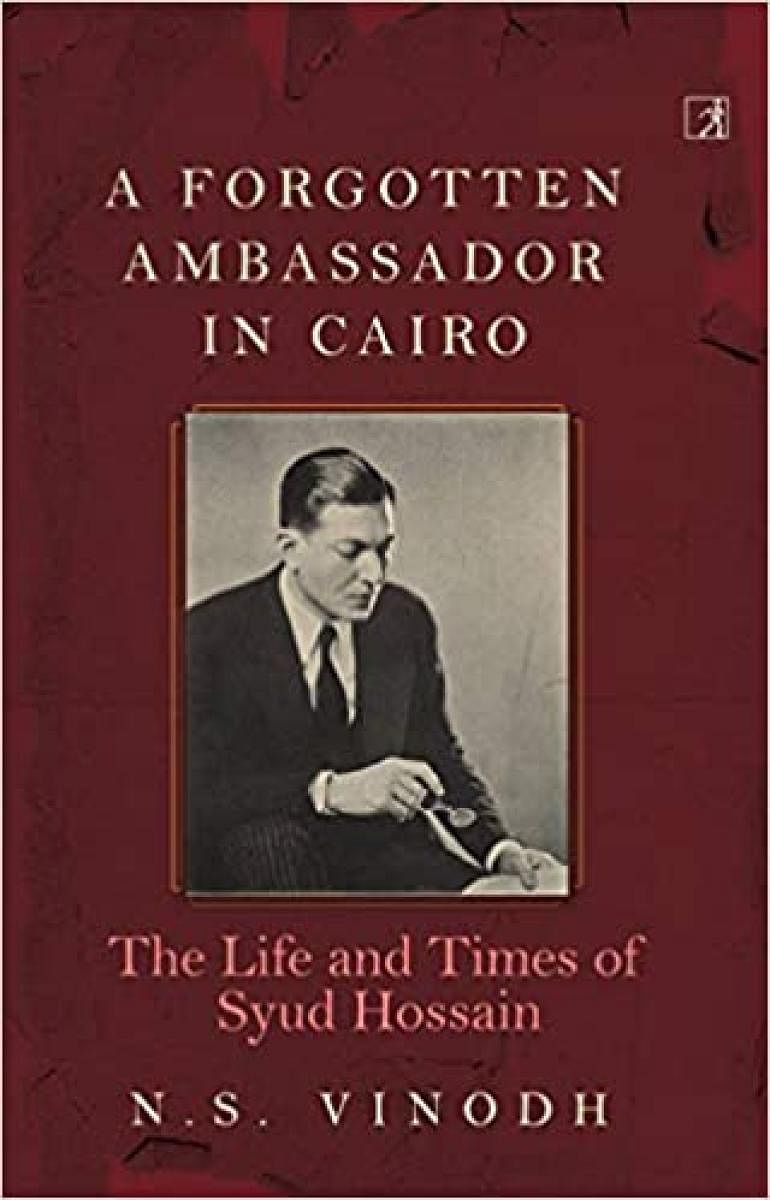
N S Vinodh embarked on this biography after stumbling upon the neglected tomb of Syud Hossain (1888-1949) at Cairo. Hossain was India’s ambassador for a year in 1948- 49. Through fastidious and commendable research, Vinodh has exhumed the story of this little-known pioneer who brought the prospect of an independent India to foreign audiences. It is as well that the book’s subtitle is life and times, because the reader is led to many digressions and several chapters where Hossain makes no appearance.
Born into a traditional nawabi Bengali family and without a university degree, Hossain’s connections took him to Britain in 1910 to qualify as a barrister. In London, he freelanced in journalism and made contacts with Jinnah, Sarojini Naidu, H G Wells and Gandhi himself. Returning to the Bombay Chronicle in 1916, he joined the Congress and wrote trenchant criticisms of the British Raj, that led in 1919 to editorship in Allahabad of Motilal Nehru’s The Independent. At this time Hossain and Vijayalakshmi, Motilal’s daughter, entered into marriage, but it was annulled by Motilal, who also terminated Hossain’s employment. Gandhi’s views quoted in the book anticipate the Hindutva ‘love jihad’, but his disapproval did not deter Hossain’s advocacy of Mahatma’s nationalism or Vijayalakshmi’s affection.
He first edited India, the Congress newspaper, and later departed for USA, where from 1921 to 1946, he lived by periodic journalism. To call him an ‘unofficial ambassador’ would be an exaggeration, as are the self-styled ‘direct descendant of the Prophet’ and a doctor’s degree, but he exploited his eloquence to good effect. Vinodh describes his looks as more Italian than Indian, and speech more British than oriental, which advanced his snob appeal. He discovered the lucre in lecturing, for which he used an agent for bookings, and edited The New Orient in New York from 1924-27, where he made influential friends.
Hossain later accompanied Vijayalakshmi (by then the widowed Mrs Pandit) to the United Nations preparatory conference in 1945. He returned to India in 1946 though both Gandhi and Nehru were cool to his approaches, and in late 1947, was appointed ambassador to Egypt though his ‘dependence on the fluid’ was by then acute. Among his welcome visitors at Cairo was Mrs Pandit, against her brother’s explicit instructions.
Just another footnote
The lack of previous testimonials to Hossain are due to his long absence from India, early death aged 61, and his short tenure in the foreign service. Also, perhaps because of his sybaritic behaviour and extravagances financed by well-wishers who were rarely acknowledged or thanked. Vinodh writes elliptically, ‘Hossain’s devotion to the Mahatma stopped well short of emulating his lifestyle,’ though his assessment that Hossain’s ‘lifelong bachelorhood was a testament to his unrequited love’ strains credibility.
Compared to others who promoted the Indian cause abroad, it is understandable that Hossain faded from public recollection. Hossain was a dandy living by his considerable wits, prickly and opinionated, and Vinodh concludes he had ‘a pungent pen, a pugnacious eloquence, a stubborn patriotism...loved by a few, despised by many and forgotten by all.’ Certainly, Hossain was proved incorrect in predicting that ‘Pakistan was impractical, and even should it happen, would be short-lived.’ Ironically, despite this gloomy forecast, almost all of Hossain’s family migrated to Pakistan.
Deccan Herald is on WhatsApp Channels| Join now for Breaking News & Editor's Picks